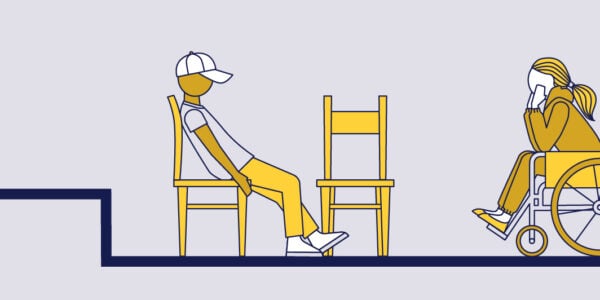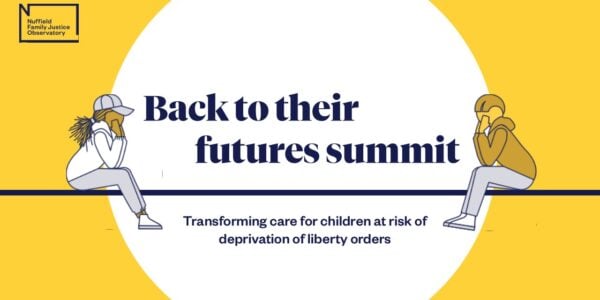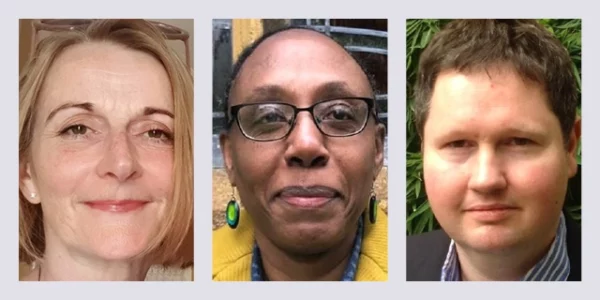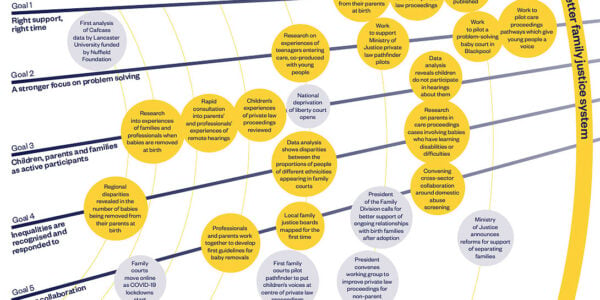New research suggests that the most vulnerable children in England and Wales are being sent to secure children’s homes in Scotland, an average of 353 miles away from their homes, family and friends, when places can’t be found for them locally.
At any one time around 25 children or more from England and Wales are living in secure care in Scotland. The new study, published by Nuffield Family Justice Observatory, suggests that they are the most vulnerable of an already vulnerable group of children, having experienced more serious difficulties – such as neglect, abuse, mental health problems, criminal and sexual exploitation – in childhood than children placed in secure homes in England.
Researchers at the Children and Young People’s Centre for Justice (CYCJ) at the University of Strathclyde undertook a census of every child in Scotland’s five secure accommodation centres on a set day in 2018 and again in 2019. More than a third (37%) of children in the census had been placed in Scotland by English or Welsh local authorities. Over 70% of those children had experienced ‘adverse childhood experiences’ such as emotional or physical neglect or abuse, parental mental ill-health, substance abuse, or separation, or exposure to domestic violence at some point in their lives – more than children in a comparable study in England.
There was also a strikingly high prevalence of mental health or emotional difficulties, substance misuse problems, incidents of violence to parents and staff, school exclusion, youth justice involvement and sexual exploitation in the year prior to the children being admitted to the secure unit. Child sexual exploitation was cited as a primary reason for admission for 23% of children – contributing to concerns that children are the ones being moved away and isolated, rather than potential offenders.
The children in the study came from families living in the most deprived areas of the country. One third of them were known to social services before the age of three, and another third had come to their attention by age 11. Despite the involvement of children’s services in their lives, it was notable that children’s exposure to risks and adverse childhood experiences persisted until secure care was necessary.
It is not acceptable for a society to lock up victims instead of offenders, yet in cases of child criminal or sexual exploitation we are seeing children placed in secure settings instead of those they are at risk from. Many of the children in our study had experienced more adversity in one year than most people experience in a lifetime. Placing them hundreds of miles from home and the support of family or friends is not a long-term solution. Our inability to meet the needs of our most vulnerable children closer to home is becoming an emergency.Lisa Harker, director of Nuffield Family Justice Observatory
Our data suggests that the children placed in Scotland’s secure children’s homes by local authorities in England and Wales have had a childhood marked by intra-familial abuse and year-on-year exposure to adversity and risk. Separation from family and friends is often another blow to a cohort of children who have face multiple difficulties”. Making the situation even more pressing is potential new legislation on its way in Scotland that could ban or significantly reduce the number of placements that are available in Scottish secure care homes to children from England and Wales. The urgent need for an alternative plan to take care of these children if that happens has yet to be acknowledged by policy makers in those countries.Ross Gibson, lead researcher of the study at the Children and Young People’s Centre for Justice (CYCJ)
For further information and interviews, please contact Nuffield Family Justice Observatory press office: mediafjo@nuffieldfoundation.org or 07966 134226.
Download Gibson, R. (2022). What do we know about children from England and Wales in secure care in Scotland?









